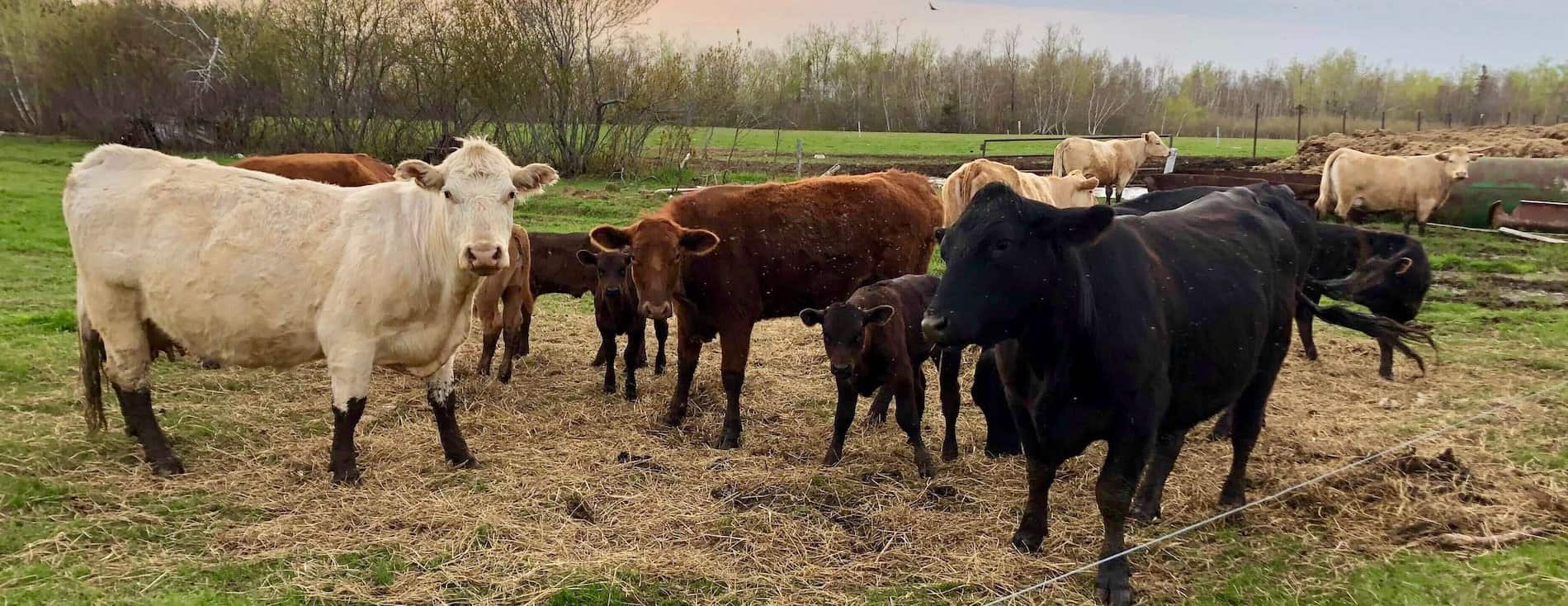
Livestock
Livestock is an important part of food systems. Farmers should earn a fair living raising high-welfare animals that yield high-quality products.
Livestock is a key component of mixed farming and many agroecological systems. These farms contribute to strong regional food systems where livestock are raised, finished, processed, and products are distributed within communities. However, ownership and control in many livestock sectors in Canada are increasingly concentrated. Large corporations reap the benefits of this concentration at the expense of farmers’ incomes, rural economies, local food security, the environment, and animal welfare.
The NFU advocates for farmers to earn a fair living raising high-welfare animals that yield high-quality meat and other products.
Learning about Livestock issues in Canada
Check out our video library for learning more about Livestock issues in Canada or read the following sections below.

Concentration in livestock sectors puts corporate profits ahead of farmer viability. The NFU builds farmer power through collective action.

Farmers are finding ways to connect directly with consumers hungry for high-quality livestock. The NFU promotes these local and regional connections.
The well-being of livestock is inherently connected to the well-being of farmers, rural communities, and the broader environment. The NFU advocates for a more holistic understanding of animal welfare.
Trade deals have brought little but empty promises and very real consequences for Canadian farmers. The NFU challenges governments to face the realities of trade agreement impacts and export overdependence.
Farmers are finding ways to connect directly with consumers hungry for high-quality livestock. The NFU promotes these local and regional connections.
Supply management is a unique Canadian institution that provides stability in certain livestock sectors by controlling the amount produced, preventing shortages, and keeping under-priced imports from being dumped into Canadian markets. To learn more, check out the NFU’s Supply Management learning area.
